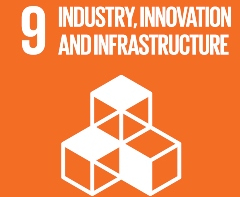.jpg)
Manchester astronomers help deliver advanced STEM skills training in Africa
While data science learning opportunities exist in Africa, they’re far from widespread and are often under-resourced, creating a significant skills gap. To help meet the challenge, The University of Manchester has brought innovative STEM training and infrastructure development to support research communities across Africa.
This work delivers on the UN Sustainable Development Goal 9: build resilient infrastructure, promote sustainable industrialisation and foster innovation.
Key facts
- Supports development of world-class African-based research infrastructure
- Building self-sustaining research communities across Africa
- Big data approaches encourage digitalisation of other sectors
As new global science infrastructures are deployed on the African continent – such as the flagship Square Kilometre Array (SKA) telescope, the world’s largest radio telescope – there is a need to support the African research community in building a wider research base that can access and utilise these infrastructures.
The Jodrell Bank Centre for Astrophysics (JBCA), which includes the Jodrell Bank Observatory, leads global research in radio astronomy and associated big data. This centre of excellence underpins an international network of multiple STEM training and development activities, including the Development in Africa with Radio Astronomy (DARA) and Big Data (DARA Big Data) programmes. These training programmes are developed and run as a partnership between key African and UK institutions, to facilitate a strong pan-African network of researchers.
Creating self-sustaining research communities
The STEM training programmes have supported the development of self-sustaining research communities across Africa including in Ghana, Kenya, Namibia, Botswana, Zambia, Madagascar, Mozambique, Mauritius and South Africa.
These research communities participate in scientific research using the SKA telescope and are a key part of new data-driven economies emerging across Africa.
This training has directly supported the development of, and investment in, new research infrastructures, such as the African VLBI Network. It is also providing the foundation for African partner countries to realise the benefits from other major research infrastructure investment.
The long-term value of these programmes in immeasurable. They are aiding the development of future leaders in research, development and innovation across Africa.
Dr Robert Beswick / Reader, Head of Science Operations and Support, UK’s National Radio Astronomy Facility
Training programmes and hackathons
Pioneering protocols developed for infrastructure, data acquisition and characterisations have directly informed the DARA Big Data training programme and hackathons (collaborative computer programming events), which use real scientific datasets to promote engagement and learning.
JBCA also developed a new pulsar timing system (Hebe) for Ghana’s pioneering Kuntunse Telescope facility and data collected from Hebe is now used in practical training.
As well as data science, the training programmes support economic growth: the use of big data challenges encourages the translation of data-intensive methodologies between research fields including astrophysics, health data and sustainable agriculture. Science communication and policy engagement training is also provided, essential for data-informed policy engagement.
The programmes have been recognised for providing STEM outreach, training and advanced postgraduate opportunities for African trainees, translating into valuable economic skills, including readiness for ‘Industry 4.0’ (smart manufacturing).
These programmes are primarily funded by the UK Newton Fund and partnered by the South African Radio Astronomy Observatory (SARAO) with support from the South African Department of Science and Innovation. This work has been boosted by funding received from the European Union’s Horizon 2020 research and innovation programme under grant agreement No730884.
-
Dr Robert Beswick
Reader in Radio Astronomy at Jodrell Bank Centre for Astrophysics, and Head of Science Operations and Support, UK’s National Radio Astronomy Facility, e-MERLIN/VLBI
View Dr Robert Beswick's research profile
-
Professor Anna Scaife
Professor of Radio Astronomy at Jodrell Bank Centre for Astrophysics and academic Co-Director of Policy@Manchester at The University of Manchester.
View Professor Anna Scaife's research profile



